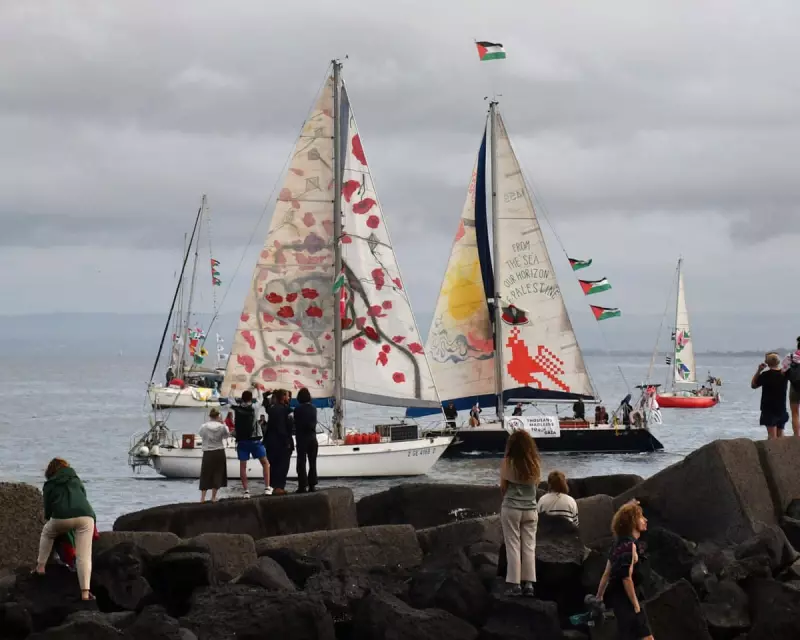
In a dramatic escalation of maritime tensions, Israeli forces have intercepted and seized a ship participating in the latest international aid flotilla attempting to reach the besieged Gaza Strip. The military operation, conducted in international waters of the Mediterranean Sea, has sparked immediate condemnation from humanitarian organisations and raised serious questions about the legality of such actions.
A Midnight Interception at Sea
According to eyewitness accounts from activists aboard the vessel, the interception occurred under cover of darkness when Israeli naval commandos surrounded and boarded the civilian ship. The operation unfolded approximately 100 nautical miles from the Gaza coastline, well beyond what many maritime law experts consider Israel's territorial waters.
"They came without warning, surrounding us with military vessels before boarding with weapons drawn," described one activist who witnessed the event. "We were a peaceful humanitarian mission carrying medical supplies and food, yet we were treated like combatants."
The Humanitarian Crisis Deepens
The seized vessel was carrying essential medical equipment, nutritional supplements for malnourished children, and emergency shelter materials desperately needed in Gaza, where the United Nations has warned of catastrophic living conditions. International aid agencies report that over 90% of Gaza's population faces acute food insecurity, with healthcare systems having largely collapsed.
This incident marks the third such interception in recent months as Israel maintains its strict naval blockade of the Palestinian territory. The Israeli government defends these actions as necessary security measures, claiming that such flotillas could be used to smuggle weapons to Hamas militants.
Legal and Diplomatic Fallout
Legal experts are divided on the legality of intercepting vessels in international waters. While Israel cites security concerns and claims the flotillas violate legitimate naval blockades, international law scholars argue that such actions may constitute violations of the United Nations Convention on the Law of the Sea.
The European Union has called for an urgent investigation into the incident, while several Mediterranean nations have expressed concern about the precedent set by such maritime operations. The United States State Department has urged restraint from all parties while acknowledging Israel's security needs.
A Pattern of Confrontation
This latest confrontation echoes the deadly 2010 Gaza flotilla raid, when Israeli commandos killed nine activists aboard the Mavi Marmara, creating a major diplomatic crisis. While today's operation appears to have been bloodless, it underscores the ongoing tensions surrounding humanitarian access to Gaza.
As the detained activists face questioning and possible deportation, humanitarian organisations vow to continue their efforts to break what they describe as an "illegal and inhumane blockade" that collectively punishes Gaza's civilian population.
The international community watches anxiously as this latest incident threatens to further complicate already strained efforts to negotiate a lasting ceasefire and address the deepening humanitarian catastrophe in the region.






